Victor Wooten just might be the busiest bass player in the world (and no, we’re not talking about his note-per-measure ratio). His days are packed with clinics, radio appearances, meet-and-greets, and soundchecks, and night after night, the man and his righteous band take it to the max, proving that he never, ever lacks for ideas, and can boldly surpass artificial limitations and the expectations of bass fanatics everywhere with marathon performances that border on the superhuman. The next morning might find the father of four tending to his family, his label, his music camps, and his other gigs, or the follow up to his acclaimed book, The Music Lesson, as he heads to the next town. And what does he do when he has a little time off?
He practices. “I’m trying to improve every side of my playing, but right now I’m working on getting more proficient at being able to solo through jazz changes,” Wooten says. “I’m okay at soloing through the changes once I hear them, but I’m not as good at just looking at a piece of sheet music and knowing what to play. That’s a fun lesson, though.”
The five-time Grammy winner, whose name is synonymous with electric bass virtuosity, will never stop evolving. Like Michael Jordan shooting free throws in the early hours before games, 48-year-old Wooten isn’t in it for the money, the notoriety, or the endorsements. It isn’t work, it’s love, and it’s about striving toward his highest potential, knowing all the while he’ll never reach it. And therein lies the greatest game for the man who will go down in history among players who are exactly that: the greatest of the greats.
So it makes sense that Wooten has raised the bar and simultaneously released two new albums on his own label, Vix Records. Words and Tones showcases Wooten’s collaborations with some of his favorite singers, including Saundra Williams, Divinity Roxx, and Meshell Ndegeocello, while Sword and Stone flaunts instrumental, orchestrated takes on 11 of the same songs, with different solos, string arrangements, and horn sections (plus three other tracks). Both albums showcase Wooten’s unique combination of R&B, contemporary jazz, funk, gospel, and world music while maintaining his signature, bass-tastic approach. As you might expect, there are plenty of virtuosic licks and jaw-dropping techniques, but Wooten’s primary focus is on grooving.
His tireless work ethic could make anyone feel lazy, but that’s far from his intention. In fact, the man who dedicates a large chunk of his time to sharing his knowledge with others understands that when people deem him the best, they are merely seeing the best in themselves. Perhaps this Zen outlook comes from all the effort Wooten puts into his craft, or it could be a manifestation of the wide-eyed joy that has stayed with him since he first picked up the bass at age 2. Whatever its source, the force of his creativity keeps Wooten’s past achievements in the rearview mirror, his soul and his craft steadily moving forward into the unknown.
LEFT: Two bassists are better than one, that’s why Wooten tours with 6-string
fretless wonder Steve Bailey.
RIGHT: Wooten onstage with a Yamaha SVC-110SK SILENT Cello.
Photos by Steven Parke
What inspired you to release
instrumental and vocal
albums at the same time?
I’ve wanted to put out two
albums at once for a long time.
Many years ago, when I was
on two different record labels,
I wanted to put out a record
on each label on the same day,
which I thought would be so
cool. But record companies
don’t like to work together like
that because they’re competitors.
This time around, I had
planned on doing just one CD
with female vocalists. In most
cases, I allow the vocalists I
work with to write a majority
of the lyrics so that they’re singing
what’s true to them, and so
they get credited as writers. But
as I was putting melodies on
the songs so the singers could
get a feel for them, I realized
I liked these songs as instrumentals,
too. Then it hit me
that I could release these as two
separate records—now that I
own my own record label, I can
do whatever I want with my
albums. I finally had an opportunity
to pursue an idea I’ve
had for a long time.
How did you decide which
songs to put on these records?
A lot of it just comes out on its
own. I’m not the type of musician
who’s writing and recording
all the time. I do have songs
I’ve recorded in the past and
have not used. In a couple of
cases, I put old songs on these
records. I have a voice recorder
on my phone, and whenever an
idea pops into my head, I either
sing it or play it into my phone.
So I went through those ideas,
wrote charts from them, and
wrote songs based on them.
How did you record
these albums?
I used all Pro Tools. I used
a little bit of both DI and
mic’ing my cabinet, but mainly
DI. I always keep a cabinet set
up in the studio so I can do
both and mix the two, but this
time I didn’t use my cabinet
much in the mix.
Did you try any new techniques
on these albums?
I’m always looking for new
tricks and techniques. I always
use a ponytail holder hair band
on the neck of my bass, and I
found that if I moved it to the
17th or 18th fret, I could make
sounds like a guitar player using
pinched harmonics. So I put
distortion on the instrument
and, just like a guitarist, I took
a solo on Sword and Stone that
sounded just like a guitarist
would. It was definitely something
new for me.
You’ve used that hair band on
your bass for many years now.
What function does it serve?
It serves as a string mute, and
depending on what you’re playing,
it’s great for muting the
open strings. Between myself
and my brother Regi and his
students, we’ve all come up
with different ways of using the
hair tie.
LEFT: Hands a blur, Wooten flits his mitts across the fretboard of his signature
Fodera Monarch at a November 9, 2012, gig at the State Theatre in Falls
Church, Virginia. RIGHT: Wooten plays an upright bass during a show last summer at Rams Head
Live in Baltimore, Maryland. Photos by Steven Parke
What have you been working
on recently?
Being able to play more melodically,
and playing more lines.
I’ve always been a rhythmic
player and I’m very comfortable
with that, but I want to play
lines like a great piano player or
horn player. Right now I’m on
tour with the Jimmy Herring
Band, and seeing Jimmy play so
well and so cleanly makes me
strive to reach that level.
How do you go from being a
bandleader to a sideman?
In either situation, I’m listening
to the groove and playing
what the song is asking for. It’s
just like us talking right now:
Everything I’m going to say is
based on what you say first.
It’s mainly about listening—I
try to do more listening than
talking. That’s the essence of
groove. If I’m really listening to
the song, then I’ll know exactly
what to play.
How has your playing evolved
over the years?
I think that the instrument
has taken a backseat. It’s not
about your instrument—it’s
about what you have to say.
Your instrument happens to
be the one you use—it might
be a bass, voice, an alto or
soprano—but who cares? It’s all
about what you’re saying with it.
Right now, you’re not thinking
about how your lips are moving
or the physics of your talking,
you’re just speaking. That’s
how I approach the bass—by
approaching the music instead.
How did you start playing bass
when you were two years old?
Actually, my brothers had me
play music with them before I
began playing bass. They would
have me sit in the room with
them and have me strum a toy,
keep time, and start and end at
the same time as the song. When
I was 2, Regi took two strings off
his extra guitar and it became a
bass for me. That’s when I really
started learning how to play the
notes to songs I already knew.
So your family has shaped
who you are as a musician?
Totally. That was my upbringing.
I played with my brothers
for the first half of my life, and
they truly turned me into who I
am. Just like kids who grow up
with a good family and go off
into the world to do their own
thing, their upbringing always
stays with them. And musically,
my background all began with
my family.
What was your first bass?
It was a copy of a Paul
McCartney Hofner violin bass,
but it was made by Univox. I still
have it. After that, I was playing
an Alembic Series 1, which is a
huge instrument that’s also really
heavy. I was so young and short
and small, and it was huge.
What has kept you playing
Fodera basses for all these years?
I got my first Fodera in about
1983. Back then, it was just a
$900 bass Vinny Fodera and
Joey Lauricella had started
making that year, and we
just happened to have met
up at the right time. I got it
right out of high school and
it felt just amazing. It fit me
perfectly. I’ve stuck with them
ever since.
What do you look for in a bass?
The first thing is that it has
to feel good. I’ve done very
little to my Fodera basses. The
only thing I’ve had Vinny and
Joey do for me is move the
volume knobs and the switches
as far back near the bridge
as possible so that they don’t
get in the way of my right-hand
strumming technique.
Although I’ve changed how my
particular instrument looks—
with a yin-yang symbol, for
example—the bass I use today
is pretty much exactly the
same as that Fodera Monarch
bass I got 30 years ago.
What inspired you to switch
to Hartke amps?
I was just ready for a change
after many years of using great
Ampeg gear, so I took some
time to just look around and
see what was out there. I spent
a year on tour with 25 different
bass cabinets and my
crew would set up a different
rig each night. So I got to
really hear, play, and experience
many different amps. It always
starts from sound, so I got the
amps with the best sound to
me, and then I started reaching
out to the companies, because
who the people in the companies
are is very important to
me. If I’m going to endorse
a product and put my name
behind it, I’m really endorsing
the people who work at those
companies. It’s like a marriage.
You’re not just going to
marry someone because they’re
beautiful, you gotta know who
they are. There were companies
whose amps I chose not to
use because of the people. But
I needed a company to support
me wherever I went, and
Hartke took the cake easily. I
got one of the first HyDrives
that they ever made.
And how is the new Hartke
HyDrive series?
I love it. It’s powerful, so I never
have to turn my volume up too
high. It’s a really bright cabinet,
so you have to be prepared for
that, but with my 1x15 cabinet,
I get all the bottom I need.
How important is your gear to
your sound?
I want gear that’s so transparent
I forget it’s there. I do clinics
for Hartke all over the world,
and sometimes I forget to talk
about them. And when I do, I
tell people that me forgetting
about the gear is a wonderful
thing, although for Hartke, it’s
not so good (laughs). I’m much
more musical and I always get
it more right in my heart and
in my head, but by the time it
comes out, there’s a bunch of
mistakes in it, and it doesn’t
sound like it did in my brain.
When the amplification is
projecting exactly what’s in my
head, then I forget it’s there.
Really, that’s the biggest thing
I’m looking for. That’s why I
have a hard time sitting in a
room and testing an amp. I’m
thinking about it too much. I
need to put it in real context.
What have you been listening
to lately?
One thing that might surprise
people is that when I’m driving
in my car by myself I’m usually
listening to country music.
I got into it when I worked
at Busch Gardens amusement
park in Virginia and learned
about country and bluegrass.
Listening to it in the car gives
me a chance to practice my
music theory. Because the chord
changes move by slowly, I can
call them out and say, “That’s
a I chord, that’s a VIm, there’s
a IIm chord, there’s a V7.” I’ve
also started to predict where it’s
going to go so I can see if I’m
right, and I can tell what’s going
to go on before it happens.
Who are your greatest
bass influences?
It all starts and ends with my
brother Regi. But Stanley Clarke
is a big one, Bootsy Collins,
Larry Graham, Jaco Pastorius,
of course, and there are tons
of other people like Chuck
Rainey, Louis Johnson, James
Jamerson and Willie Weeks.
Acoustic players like Ron Carter,
Charles Mingus, Scott LaFaro.
And that’s just bass players. My
musical influences span a lot of
different instruments.
How does the bass resonate
with your personality?
It’s a supporting instrument.
It’s designed to make other
people feel and sound good. It
seems like a lot of the time, we
forget that. That instrument
was not designed to be on top,
and it’s rare that you’ll find a
bass player who is leading a
band. It’s designed so that most
of the time we’re going to be
sidemen. But I find that when
most of us bassists are alone
practicing, that rarely comes
into the picture of what we’re
working on. We’re going to get
hired based on our ability to
be a supporter, but when we
practice, we learn new scales
and work on our licks and our
solos and how to play faster.
But you never get hired for any
of that. You have to honor the
true spirit of the instrument.
How does it make you feel
when people tell you you’re
the best ever?
I understand that what people
think, good or bad, is up to
them and not me. A little kid
who looks up to his big brother
for being able to dunk a basketball,
for example, is really
seeing his own future potential.
It wouldn’t make sense for the
older brother to stop dunking
the ball because the younger
brother can’t, so he keeps doing
it. When people put me up
on a pedestal, I used to take
myself off it and tell them I
wasn’t that good, or I’d shrug it
off. But what I realized is that
whether they know it or not,
when they think they’re talking
about me, they’re really talking
about themselves. I don’t want
to diminish their dreams by saying
I’m not that good. Instead,
I accept it, say thank you, and
then we move on.
What would you ideally want someone to say about your music after hearing it for the first time? That they really enjoyed it and that it inspired them to go do it. I want people to feel something. I want them to think less about the technique and the playing behind it and feel the big picture of it all. Music should hit you in your heart and make you feel something real, just like an Otis Redding song does.
What inspires you to keep
growing as a player?
You have to understand that
music never ends and there’s
always someplace new to go
with it. A good friend of mine
once said that it’s like trying to
count to infinity—no matter
how far you go, you’re no closer
to the end. In no way do I
think that I’ve reached the limit
or the full potential of my playing
ability. None of us have.
Victor Wooten's Gear
Basses
Fodera 4-string fretted Monarch
basses, various upright models
Amps
Hartke HyDrive LH Series, Hartke
HyDrive 410, HyDrive 115
Effects
Rodenberg Distortion pedal,
Boss GT-6B Multi-effects pedal,
Zoom B3 Multi-effects
Strings
D’Addario nickels strings
(.040, .055, .075, .095)
YouTube It
Here Wooten demonstrates the harmonic technique
heard on his new track “Sword and Stone,” where
he uses a hair tie on the fretboard of his bass:
This clip from a clinic in Mechanicsville, Virginia,
demonstrates Wooten’s tremendous grasp of
melody, harmony, and rhythm:
In this clip from the 2010 NAMM show, Wooten
plays his famous version of “Amazing Grace,” an
arrangement he first unveiled with the Béla Fleck
and the Flecktones:


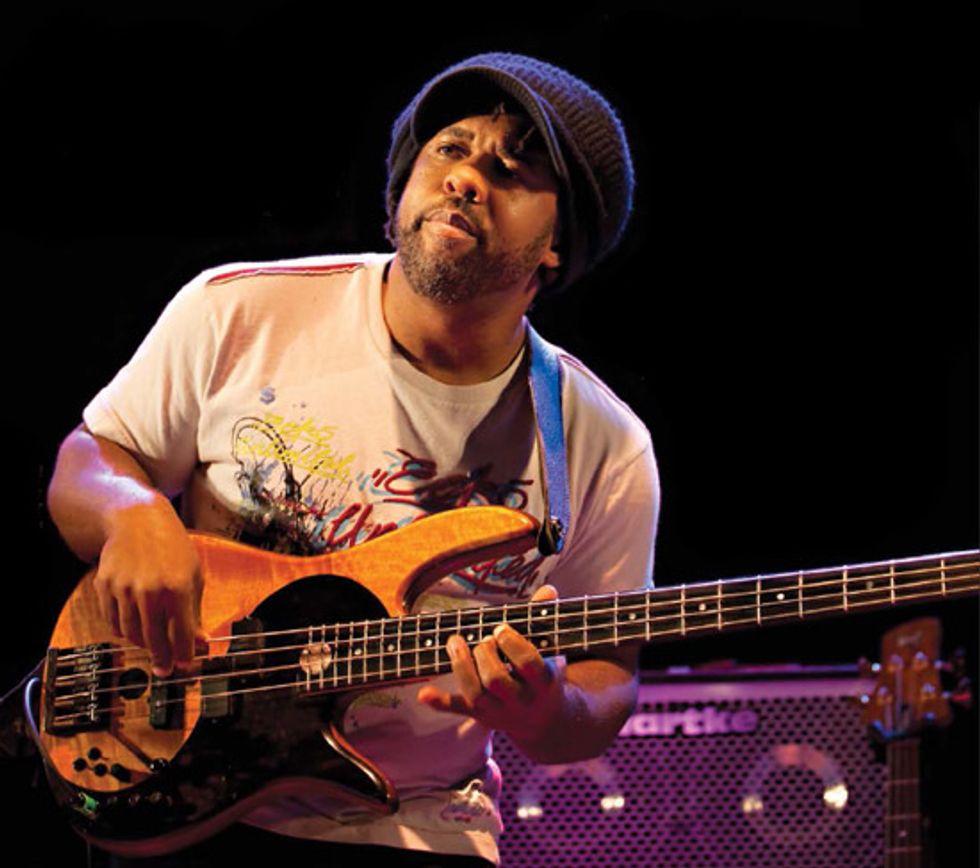
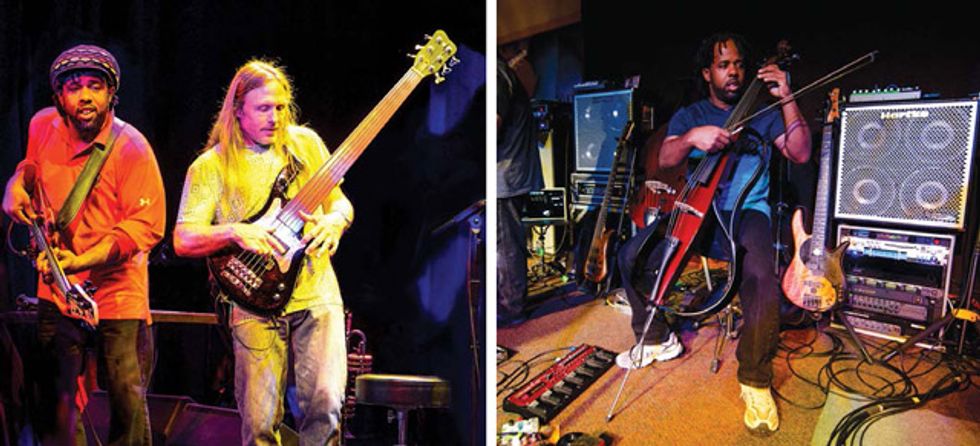
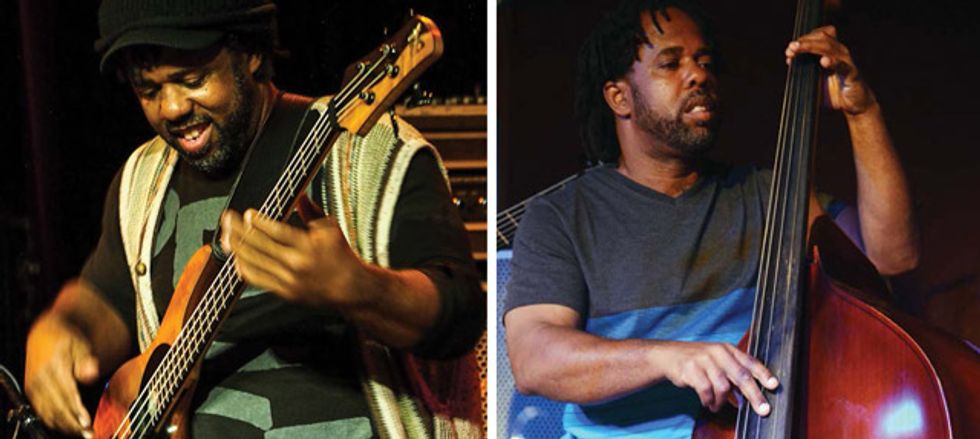
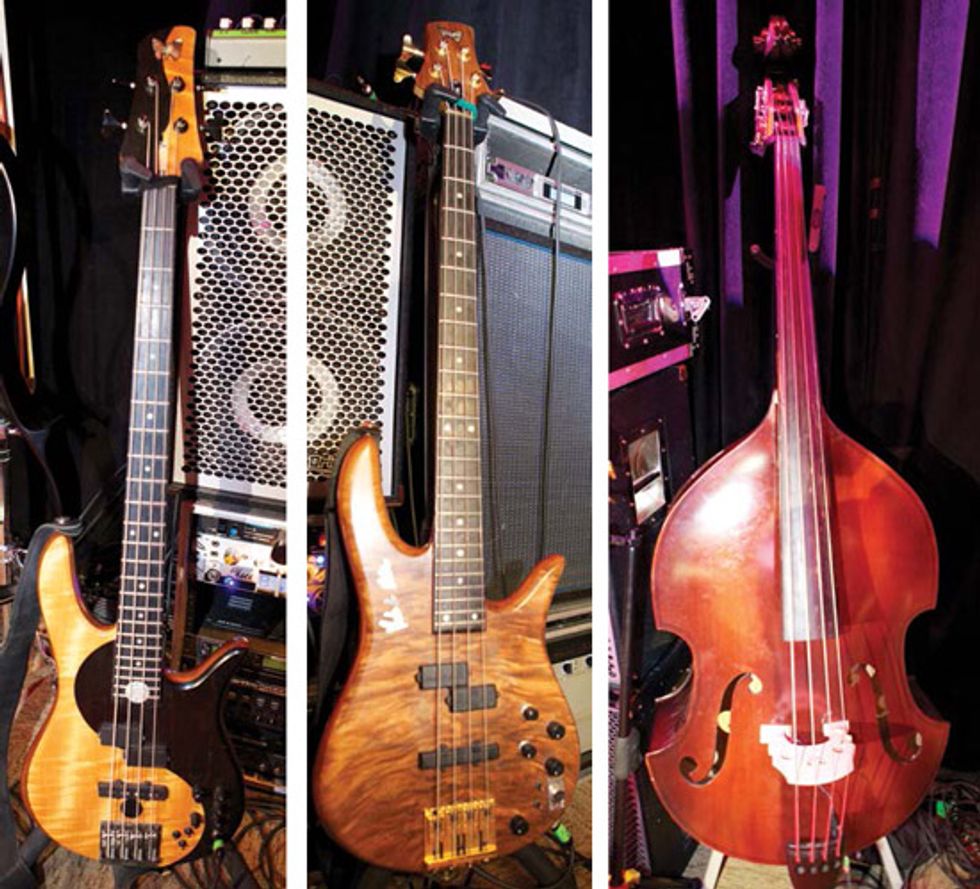








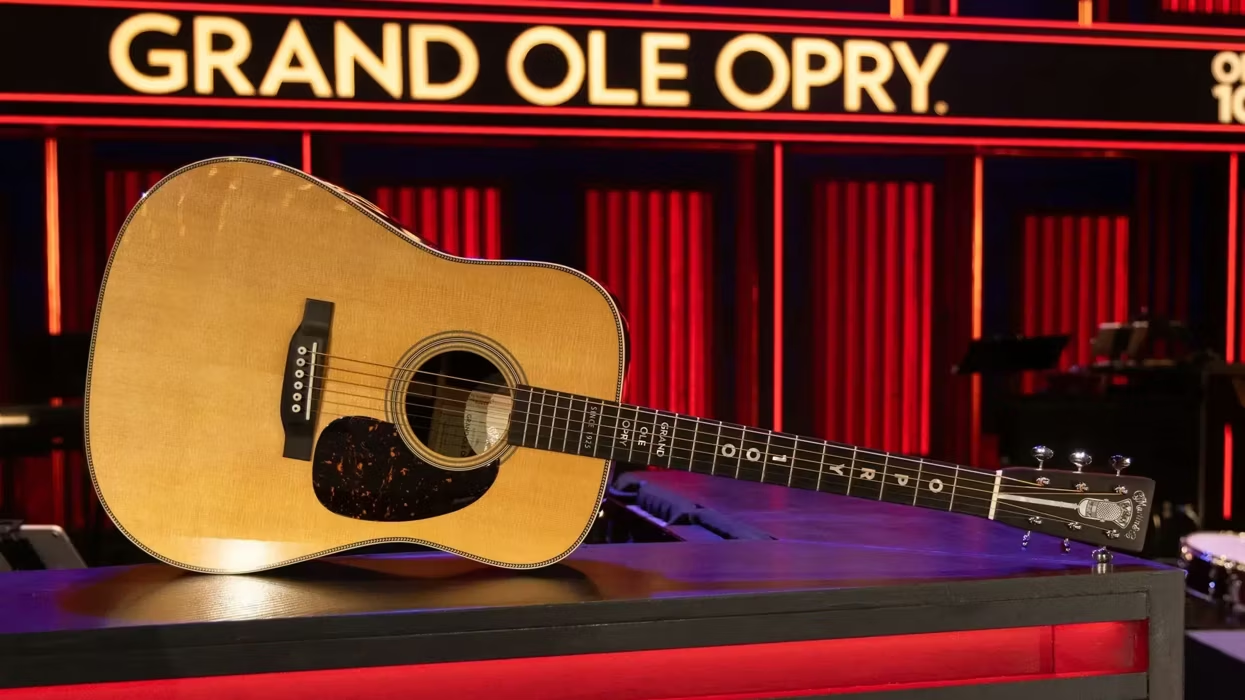
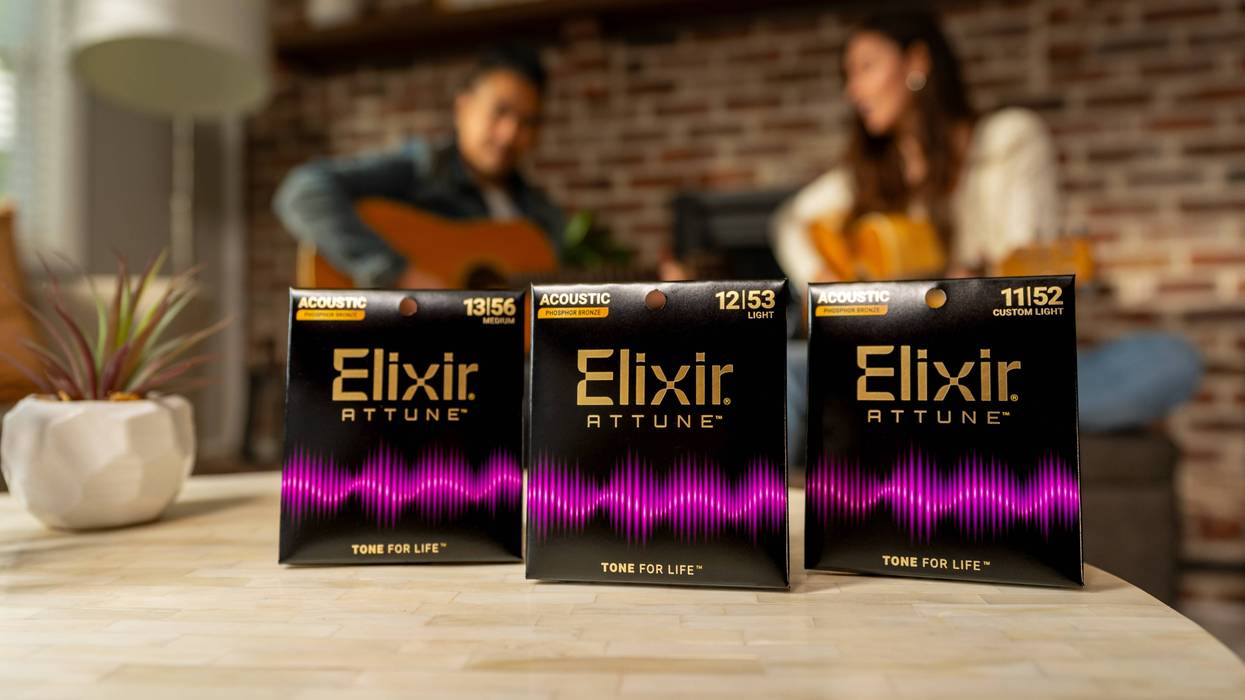
![Rig Rundown: AFI [2025]](https://www.premierguitar.com/media-library/youtube.jpg?id=62064741&width=1245&height=700&quality=70&coordinates=0%2C0%2C0%2C0)

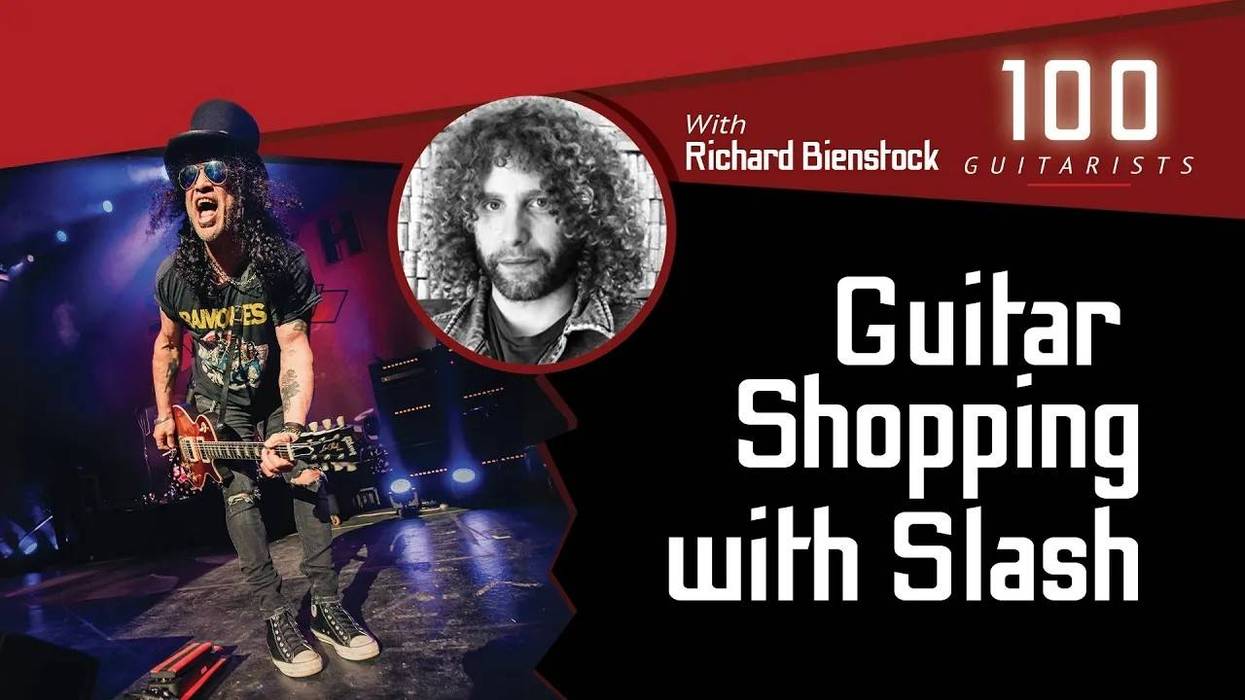

![Rig Rundown: Russian Circles’ Mike Sullivan [2025]](https://www.premierguitar.com/media-library/youtube.jpg?id=62303631&width=1245&height=700&quality=70&coordinates=0%2C0%2C0%2C0)
























 Zach loves his Sovtek Mig 60 head, which he plays through a cab he built himself at a pipe-organ shop in Denver. Every glue joint is lined with thin leather for maximum air tightness, and it’s stocked with Celestion G12M Greenback speakers.
Zach loves his Sovtek Mig 60 head, which he plays through a cab he built himself at a pipe-organ shop in Denver. Every glue joint is lined with thin leather for maximum air tightness, and it’s stocked with Celestion G12M Greenback speakers.






